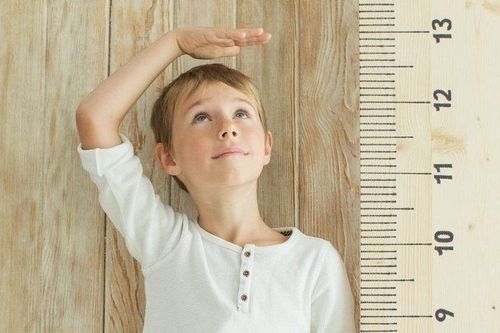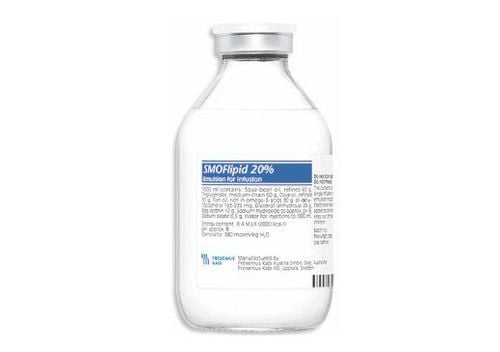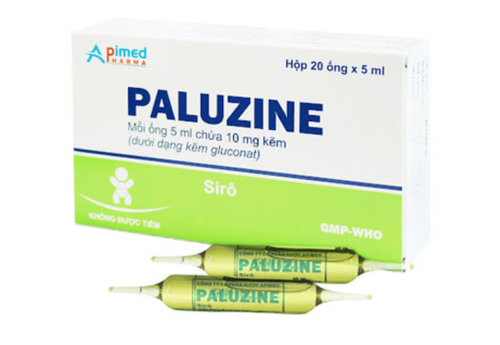This is an automatically translated article.
One factor that plays an important role in the growth of a child's height is growth hormone. When the growth hormone produced by the pituitary gland does not provide the necessary amount, it will cause the child to be shorter than his peers.
1. What is a short child?
The average body length or height of a newborn is about 50cm. Children grow about 25cm in the first year and for the next 2 years, they will increase on average 10cm a year. Children from 3 years old and up until puberty, each year will increase about 5cm.
Children are considered stunted in height or short when they do not reach the growth milestones in height for age. This will lead to children being shorter than their peers and losing confidence in adulthood.
Some causes lead to short children such as malnutrition, cartilage dysplasia, rickets, anemia or other congenital diseases. Among them, growth hormone deficiency is the most common cause.
2. Why do children lack growth hormone?
Growth hormone is a hormone secreted by the pituitary gland and has the ability to affect almost all tissues in the human body. This is a hormone that helps children grow taller, metabolizes to reduce fat mass and increase muscle mass in the body. Pituitary dwarfism or growth hormone deficiency will cause children to slow down their body growth, increase the risk of fractures and heart-related diseases.
Some common causes of growth hormone deficiency:
Congenital causes: Due to aplasia or hypoplasia of the pituitary gland, anterior brain abnormalities; Acquired causes: Pituitary tumor, hypothalamic tumor; brain injury, surgery due to trauma; infection with strains of bacteria, viruses, fungi; cancer treatment by irradiation in the skull, nasopharyngeal area, eye socket or in acute leukemia; transient prepubertal hypothyroidism, hypothyroidism, or idiopathic disease.

Bệnh lùn tuyến yên hay thiếu hormone tăng trưởng sẽ khiến trẻ chậm phát triển cơ thể
3. Clinical signs of growth hormone deficiency
Some manifestations of thyroid hormone deficiency are as follows:
The body is still quite balanced; The skin may be yellowish in color, the subcutaneous fat layer is small, or the fat is concentrated mainly in the abdomen or breasts and thighs; Slow growing muscles, short bones; The internal organs are small in size but function without disorder;.
4. Diagnosing short children with pituitary gland
When the child does not meet the standards for weight and height, you should take your child to the doctor. Your doctor will also explore information such as how you developed during puberty and how well your child's siblings were growing. In case of suspecting that a child is short due to a lack of growth hormone, the doctor will order some of the following subclinical tests to make a definitive diagnosis:
Blood tests are used to measure the amount of growth hormone and a other related hormones in the body. X-rays of a child's arm can show the extent of bone growth, specifically the synaptic cartilage. These are the tissues that grow at the ends of the bones of the arms and legs that will fuse together at the end of the growth. Kidney and thyroid function tests are used to determine how well the body is producing and using hormones. Magnetic resonance imaging when a pituitary tumor is suspected will provide doctors with detailed information inside the brain. Adults with a history of pituitary disorders, brain injury, or brain surgery will often have growth hormone testing.
5. When should treatment for short children due to lack of growth hormone?
According to the recommendations of experts, it is necessary to treat short children due to lack of growth hormone as soon as possible, because "stimulating" height by growth hormone is not always done well.
Normally, children have 3 golden stages of height development as follows:
From birth to 3 years old: Children increase on average 8-10 cm/year; From 3 - 10 years old in girls and 3 - 13 years old in boys: On average, children increase 6-7cm/year; The stage of puberty is when the baby's height is likely to increase by 8-12cm/year. When children are deficient in growth hormone, it is almost impossible to increase in height any more or growth is very slow.
The best treatment for children with growth hormone deficiency is between 3 and 7 years old and should be maintained until puberty ends.
From the age of 21 onwards, most of the height has entered the stable phase because the cartilage will close. Therefore, even with growth hormone injection or application of measures to stimulate the production of growth hormone, it is not possible to grow taller.

Cần điều trị cho trẻ thấp lùn do thiếu hormone tăng trưởng càng sớm càng tốt
6. Some Treatments for Growth Hormone Deficiency
To treat short children due to lack of growth hormone, it is necessary to combine many following measures:
Nutrition: Children need to be fortified with protein-rich foods (meat, fish, eggs, milk) and vitamins of all kinds; Stimulate body growth; Stimulates the development of gonads; Treatment of hypothyroidism is with the use of thyroid hormones. The Pediatrics Department at Vinmec International General Hospital is a prestigious address that receives and examines many diseases that infants and young children suffer from, including growth hormone deficiency.... With modern equipment, sterile space, minimizing the impact as well as the risk of disease spread. Along with that is the dedication from doctors and nurses with professional experience with pediatric patients, making the examination and child care no longer a concern of parents.
Please dial HOTLINE for more information or register for an appointment HERE. Download MyVinmec app to make appointments faster and to manage your bookings easily.













